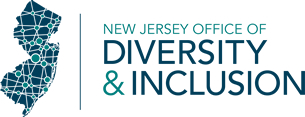Diversity represents the variety of abilities, skills, experiences and cultural background in all stakeholders.
Inclusion values and leverages differences to achieve superior results.
Diversity and Inclusion moves beyond valuing diversity. It looks at:
- The mindset of an organization
- The climate of an organization
- The different perspective people bring to an organization due to race, workplace styles, disabilities and other differences.
Through Diversity, an organization widens access to the best talent. Inclusion allows the talent to be engaged effectively. Together D&I leads to enhanced Innovation, creativity, productivity, reputation, engagement and results.
Supplier Diversity is a business strategy that ensures a diverse supplier base in the procurement of goods and services for any business or organization. It emphasizes the creation of a diverse supply chain that works to secure the inclusion of diverse groups in the procurement plans for government, not-for-profits and private industry.
“Minority” means a person who is:
- Black: A person having origins in any of the black racial groups in Africa; or
- Hispanic: A person of Spanish or Portuguese culture, with origins in Mexico, South or Central America, or the Caribbean Islands, regardless of race; or
- Asian American: A person having origins in any of the original peoples of the Far East, Southeast Asia, Indian Subcontinent, Hawaii or the Pacific Islands; or
- American Indian or Alaskan native, which is a person having origins in any of the original peoples of North America
- Owned and controlled by minorities in which at least 51 percent of the ownership interest is held by minorities and the management and daily business operation are controlled by one or more of the minorities who own it; or
- A corporation or other business entity authorized under the laws of the United States whose management and daily business operations are controlled by one or more minorities who own it, and which is at least 51 percent owned by one or more minorities or, if stock is issued, at least 51 percent of the stock is owned by one or more minorities.
“Woman or Women” means a female or females, regardless of race “Women Business” means business which is:
- Owned and controlled by women in which at least 51 percent of the ownership is held by women and the management and daily business operations of which are controlled by one or more women who own it; or
- A corporation or other business entity authorized under the laws of the United States whose management and daily business operations are controlled by one or more women who own it, and which is at least 51 percent owned by women or, if stock is issued, at least 51 percent of the stock is owned by one or more women.
“Public Agency” means the State or any department, division, agency, authority, board, commission, or committee thereof.
The Treasury’s Division of Purchase and Property database listing registered small businesses and certified minority and women-owned businesses by the Division.
“State Contracting Agency” or “Contracting Agency” means any board, commission, committee, authority, division, college, university, department or agency of the State which possesses the legal authority to enter into or award contracts for goods and services or construction contracts. A list of State contracting agencies shall be maintained on www.newjerseybusiness.gov, and updated as necessary to reflect the addition or elimination of agencies.
A U.S. citizen whose origins are from India, Pakistan and Bangladesh.
A U.S. citizen whose origins are from Japan, China, Indonesia, Malaysia, Taiwan, Korea, Vietnam, Laos, Cambodia, the Philippines, Thailand, Samoa, Guam, the U.S. Trust Territories of the Pacific or the Northern Marianas.
A U.S. citizen who is of African (excluding Northern) descent.
A U.S. citizen of true-born Hispanic heritage, from any of the Spanish-speaking areas of the following regions: Mexico, Central America, South America and the Caribbean Basin only. Brazilians (Afro-Brazilian, indigenous/Indian only) shall be listed under Hispanic designation for review and certification purposes.
A person who is an American Indian, Eskimo, Aleut or Native Hawaiian, and regarded as such by the community of which the person claims to be a part. Native Americans must be documented members of a North American tribe, band or otherwise organized group of native people who are indigenous to the continental United States and proof can be provided through a Native American Blood Degree Certificate (i.e., tribal registry letter, tribal roll register number).

 Official Site of The State of New Jersey
Official Site of The State of New Jersey